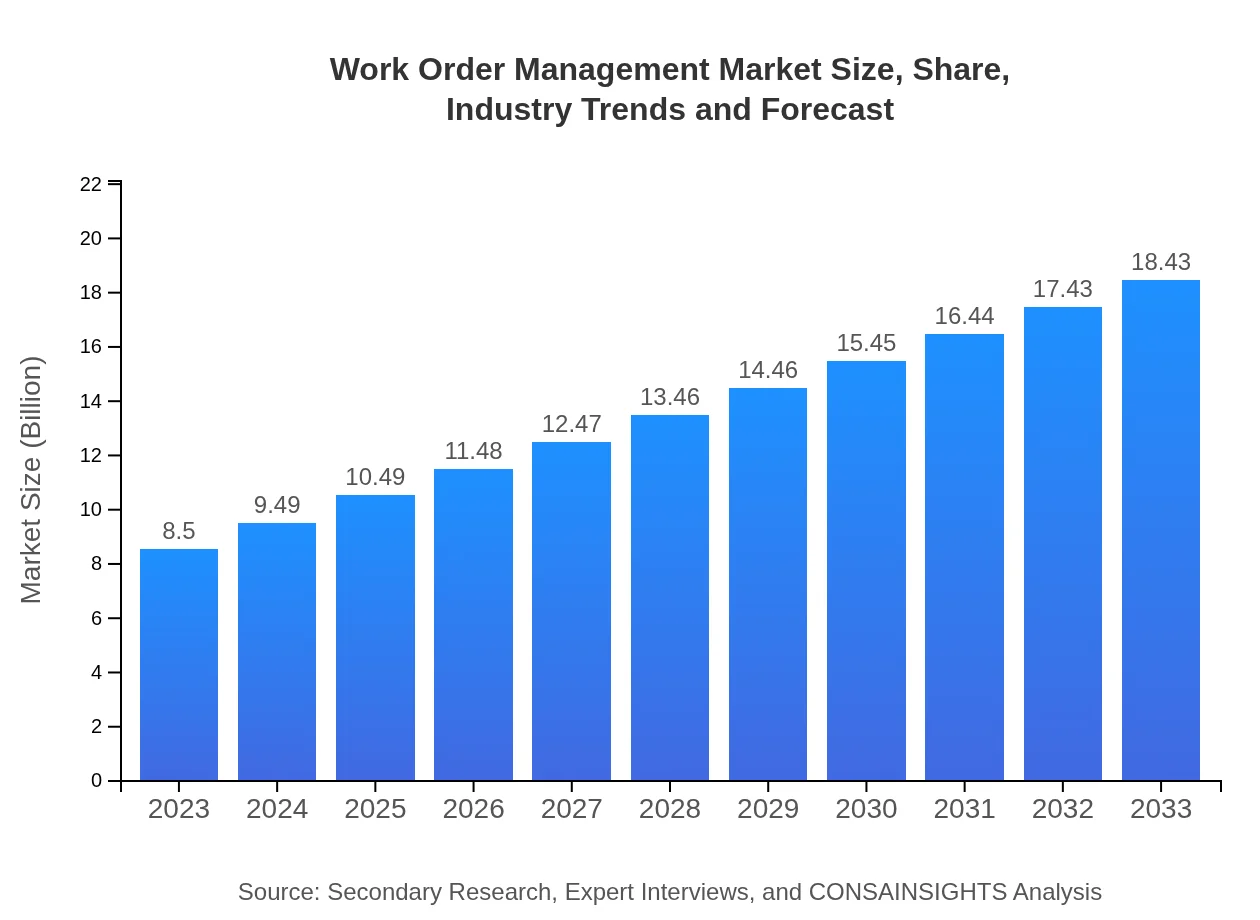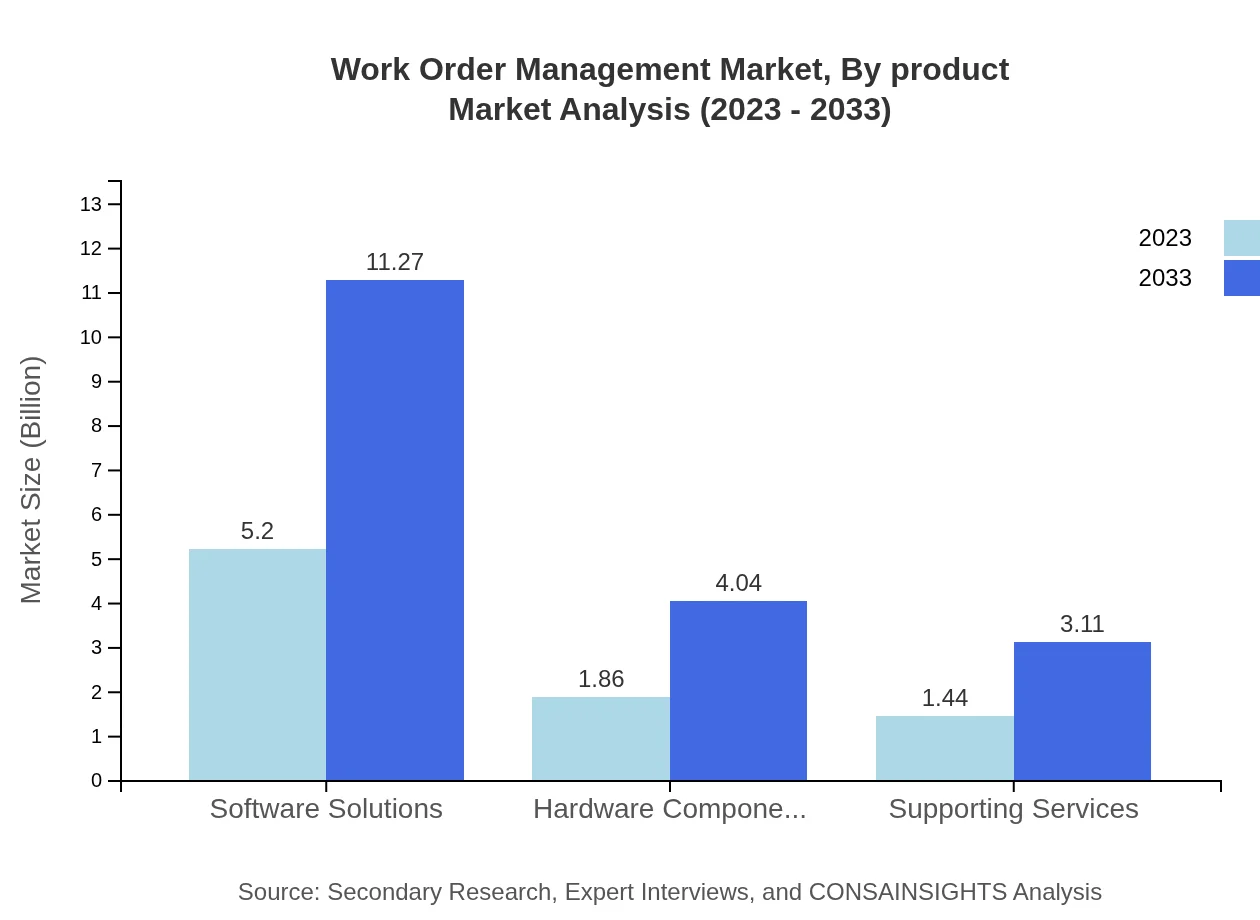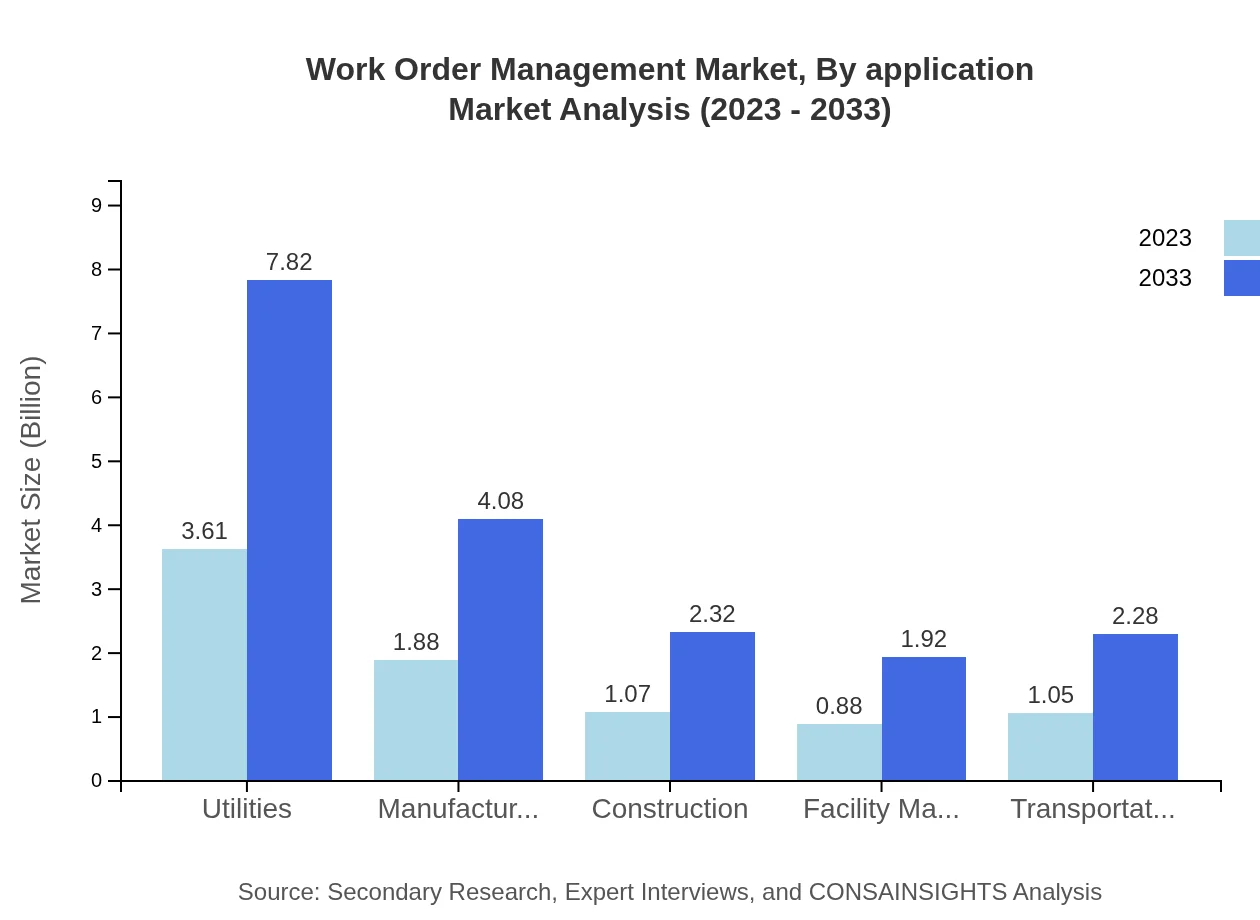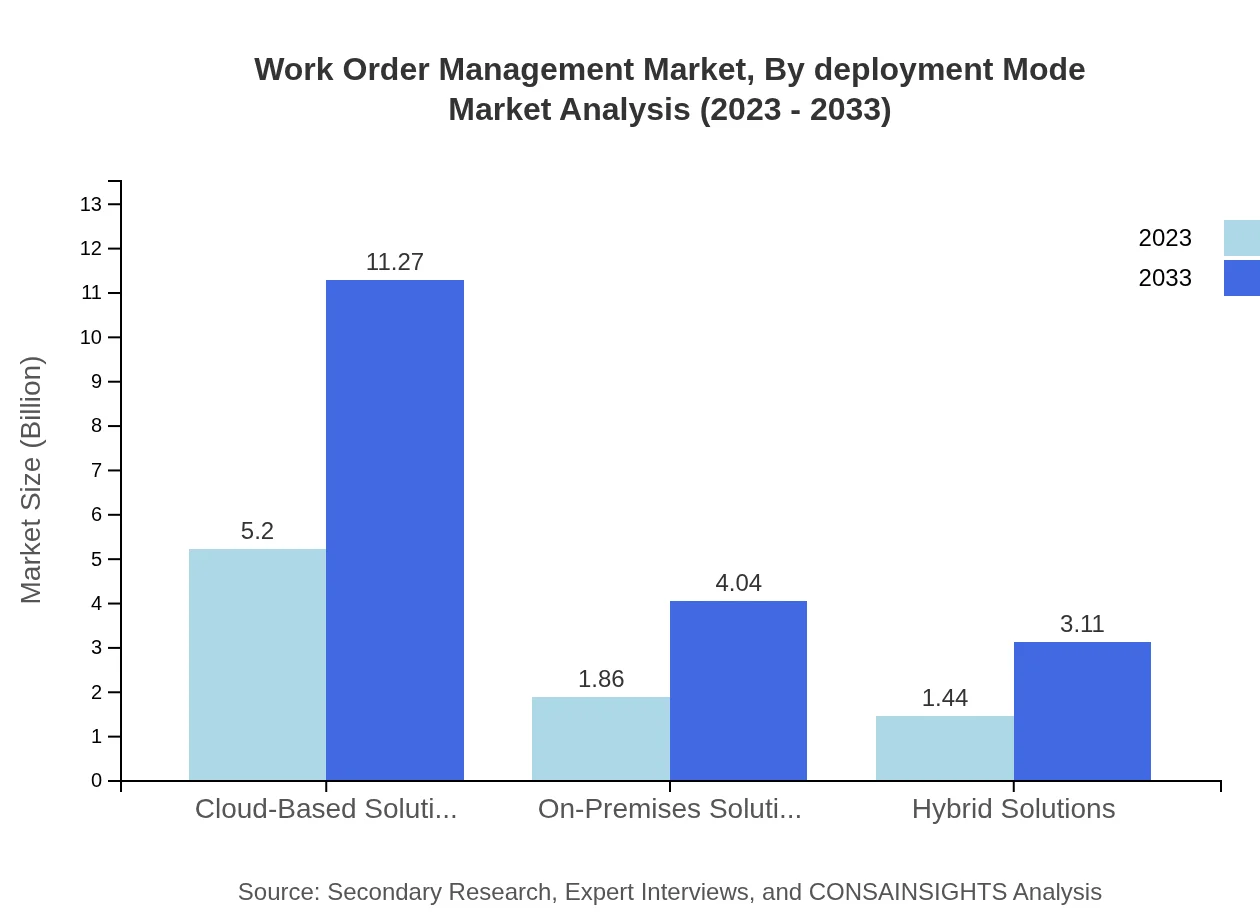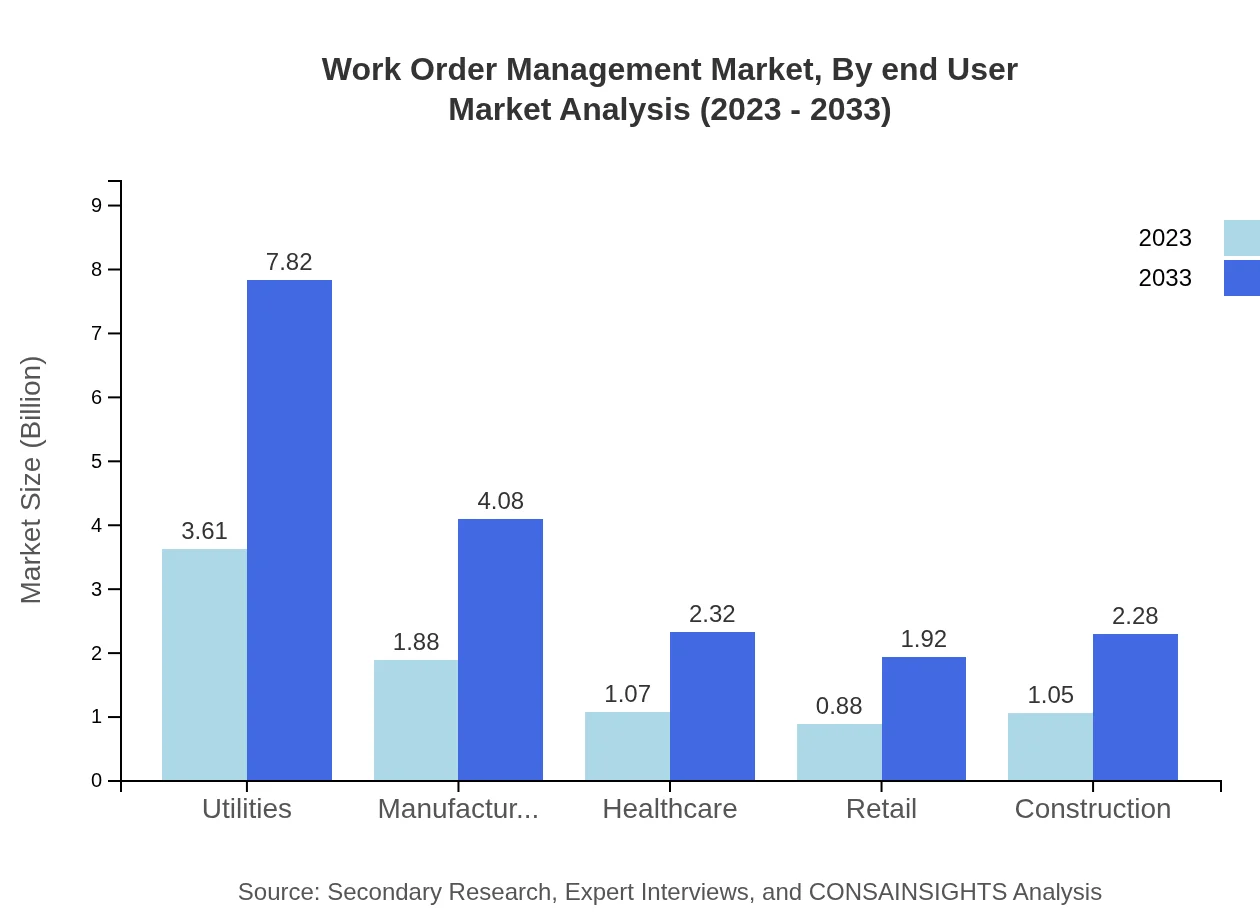Work Order Management Market Report
Published Date: 31 January 2026 | Report Code: work-order-management
Work Order Management Market Size, Share, Industry Trends and Forecast to 2033
This report provides an extensive analysis of the Work Order Management market from 2023 to 2033, offering insights into market size, industry trends, regional analysis, and growth forecasts. It also covers segmentation and major players in the industry.
| Metric | Value |
|---|---|
| Study Period | 2023 - 2033 |
| 2023 Market Size | $8.50 Billion |
| CAGR (2023-2033) | 7.8% |
| 2033 Market Size | $18.43 Billion |
| Top Companies | IBM, Oracle, SAP, ServiceNow, Microsoft |
| Last Modified Date | 31 January 2026 |
Work Order Management Market Overview
Customize Work Order Management Market Report market research report
- ✔ Get in-depth analysis of Work Order Management market size, growth, and forecasts.
- ✔ Understand Work Order Management's regional dynamics and industry-specific trends.
- ✔ Identify potential applications, end-user demand, and growth segments in Work Order Management
What is the Market Size & CAGR of Work Order Management market in 2023 and 2033?
Work Order Management Industry Analysis
Work Order Management Market Segmentation and Scope
Tell us your focus area and get a customized research report.
Work Order Management Market Analysis Report by Region
Europe Work Order Management Market Report:
Europe is expected to see substantial growth from $2.60 billion in 2023 to $5.63 billion by 2033. The demand for enhanced facility management and adherence to regulatory standards fuels the market, particularly in countries like Germany and the UK.Asia Pacific Work Order Management Market Report:
In the Asia-Pacific region, the Work Order Management market was valued at $1.59 billion in 2023 and is projected to reach $3.45 billion by 2033. The growth is primarily driven by increasing industrialization, urbanization, and investments in technology infrastructure across countries such as China and India.North America Work Order Management Market Report:
North America held a prominent position in the Work Order Management market with a valuation of $3.19 billion in 2023, projected to reach $6.92 billion by 2033. The region benefits from advanced technology integration and businesses’ focus on operational efficiency, making it a leader in software adoption.South America Work Order Management Market Report:
South America's Work Order Management market was valued at $0.46 billion in 2023 and is expected to grow to $0.99 billion by 2033. The region is focusing on improving its service infrastructure, driven by socioeconomic developments and government initiatives for technological adoption.Middle East & Africa Work Order Management Market Report:
The Middle East and Africa market was valued at $0.66 billion in 2023, projected to reach $1.44 billion by 2033. Market growth is driven by infrastructure development plans and a rising demand for efficient service delivery models.Tell us your focus area and get a customized research report.
Work Order Management Market Analysis By Product
The Work Order Management market is statistically dominated by Software Solutions, which had a market size of $5.20 billion in 2023 and is projected to grow to $11.27 billion by 2033. Hardware Components and Supporting Services also contribute to the market, with values of $1.86 billion and $1.44 billion, respectively, in 2023, illustrating the diverse needs for both technology and service support.
Work Order Management Market Analysis By Application
The market segments by applications include Utilities, Manufacturing, Healthcare, and Retail, each playing a significant role. For instance, Utilities account for the largest share with a size of $3.61 billion in 2023 and an expected growth to $7.82 billion by 2033, demonstrating the critical demand in this sector.
Work Order Management Market Analysis By Deployment Mode
Work Order Management solutions are deployed through Cloud-Based Solutions, On-Premises Solutions, and Hybrid Solutions. Cloud-Based Solutions lead the market with sizable growth, showcasing a shift in preference toward agile and flexible management systems among organizations seeking to enhance their operational framework.
Work Order Management Market Analysis By End User
End-user industries such as Facility Management, Transportation, and Construction are significant contributors to the Work Order Management market. Facility Management, for example, had a size of $0.88 billion in 2023, expected to rise considerably along with growing facility complexities requiring robust management systems.
Work Order Management Market Trends and Future Forecast
Tell us your focus area and get a customized research report.
Global Market Leaders and Top Companies in Work Order Management Industry
IBM:
IBM offers comprehensive work order management solutions utilizing cloud technology, enabling organizations to streamline operations and enhance service delivery through data-driven insights.Oracle:
Oracle's suite of applications provides robust capabilities for managing work orders, focusing on improving asset management, service efficiency, and compliance.SAP:
SAP leads with enterprise resource planning solutions that integrate work order management, helping companies optimize their operations across various sectors.ServiceNow:
ServiceNow specializes in IT service management and work order management solutions, driving efficiency and automation across enterprise operations.Microsoft:
Microsoft's offerings include project management software that incorporates work order functionalities, appealing to businesses striving for digital transformation.We're grateful to work with incredible clients.









FAQs
What is the market size of Work Order Management?
The global Work Order Management market is valued at approximately $8.5 billion in 2023 and is projected to grow at a CAGR of 7.8%. By 2033, the market is expected to expand significantly, reflecting increasing demand across various sectors.
What are the key market players or companies in this Work Order Management industry?
Key players in the Work Order Management industry include leading software providers and technology firms that specialize in asset management, enterprise resource planning, and cloud services tailored for work order processes. They focus on enhancing efficiency and service delivery.
What are the primary factors driving the growth in the Work Order Management industry?
Factors fueling growth include the increasing adoption of IoT technologies, the need for improved operational efficiency, and digital transformation across industries. Additionally, the rising demand for cloud-based solutions is propelling the market forward.
Which region is the fastest Growing in the Work Order Management?
Asia Pacific is the fastest-growing region for Work Order Management, with a market size projected to increase from $1.59 billion in 2023 to $3.45 billion by 2033. Other regions like North America and Europe also show significant growth.
Does ConsaInsights provide customized market report data for the Work Order Management industry?
Yes, ConsaInsights offers customized market report data tailored to specific needs within the Work Order Management industry. This customization allows clients to access focused insights relevant to their business context.
What deliverables can I expect from this Work Order Management market research project?
Clients can expect detailed market analysis reports, segment data, regional insights, competitive landscapes, and growth forecasts. These deliverables are designed to support strategic planning and decision-making processes.
What are the market trends of Work Order Management?
Key market trends include the shift towards cloud-based and hybrid solutions, increased investment in mobile applications for field service management, and a growing emphasis on automation and data analytics to enhance decision-making.

